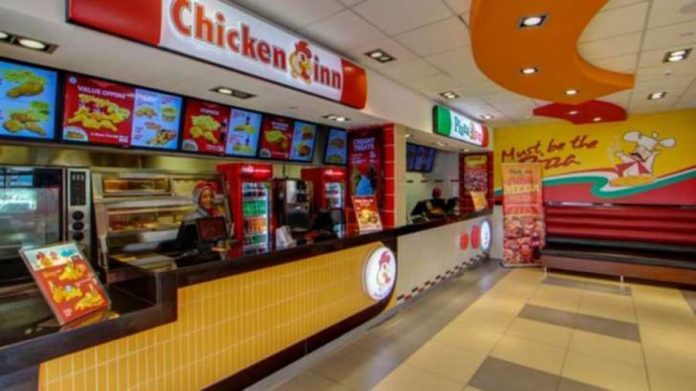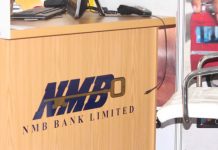Pride Mzarabani
HARARE – Simbisa Brands reported an US$84 million increase in revenue for the first quarter ended 30 September 2025 (Q1 FY2026), driven by company strong expansion foot print across the region which translated into increased customer volumes.
In the period under review the company recorded a 9% growth in customer volumes to 16.8 million, driving revenue upwards and a 4% rise in average spend to US$5.01. Currently the company now operates 733 outlets, 607 company-owned and 126 franchised.
As part of the expansion drive the company added a net total of 20 new counters during the period. “The Group has shifted its focus towards modernising its existing store network to elevate the customer experience and maintain globally competitive brand standards,” said the company.
The Group reported that its decentralised, brand-focused model in Zimbabwe and Kenya is already yielding positive results. The revised pricing strategy, which includes substantial reductions on several key menu items, has successfully stimulated customer volume growth, more than offsetting the impact of softer gross profit margins. Favourable macroeconomic conditions across the Group’s markets further boosted performance, supported by stable currencies, improved consumer demand, favourable weather patterns and strong commodity prices.
Despite intensifying competition in the Zimbabwean fast-food sector, Simbisa continues to dominate the market even with the entry of Hungry Lion from South Africa and the emergence of new players such as Huku and Chips.
Revenue from the Zimbabwe business grew 16% year-on-year in Q1 FY2026 to US$61.1 million, underpinned by a 9% increase in customer volumes to 13.2 million and a 6% rise in average spend. Significant improvements in customer service strengthened brand loyalty and encouraged repeat visits.
The uplift in average spend was primarily driven by a 74% year-on-year surge in delivery orders. The Zimbabwe store network expanded by a net of 8 new counters, 22 openings and 14 closures, closing the quarter with 338 trading counters.
During the period under review, 6 counters were refurbished as part of Simbisa’s ongoing infrastructure upgrade programme. However, the business continued to face margin pressures stemming from inflationary cost increases and the impact of the Fast-Food Tax.
This comes after the company had committed US$18.58 million in capital expenditure for its current financial year ending June 30, 2026. This budget represents an increase from the previous year’s US$11.8 million and is designated for expansion and modernization efforts.
In Kenya, customer volumes grew 9% year-on-year to 3.3 million, offsetting a 3% decline in average spend to US$6.43 and resulting in a 6% increase in revenue to US$21 million. The decline in average spend reflects heightened price sensitivity, prompting Simbisa Kenya to introduce more affordable value-meal options. This reduced transaction values despite rising delivery contributions, which accounted for 24% of revenue in Q1 FY2026, up from 19% in Q1 FY2025, driven by a 56% increase in delivery volumes.
Store expansion in Kenya continued at a slower pace as the focus shifted to capital investment and driving footfall in existing outlets. Over the 12 months to 30 September 2025, the country recorded 5 new store openings and 6 closures, ending the period with 252 counters. 6 counters were also refurbished. Inflationary cost pressures, combined with lower menu prices softened gross profit margins. However, disciplined cost control and revenue growth supported an improvement in operating profit margins and delivered strong overall profitability.
In Eswatini, the positive operational momentum from the second half of FY2025 carried into Q1 FY2026, supported by stable economic conditions, a strengthened customer-centric strategy, and the leadership of a new management team. Revenue grew 10% year-on-year to US$1.5 million, driven by a 9% rise in customer volumes to 293 000 and a modest 1% increase in average spend to US$5.05. Although margin pressures from the Group’s value-driven pricing strategy and inflationary input costs tempered bottom-line growth, the market still delivered enhanced profitability.
Looking ahead, the Group remains focused on accelerating its customer-centric growth strategy through continued investment in digital transformation and service excellence. Enhanced digitisation is expected to improve operational efficiency, customer convenience, and cost-saving initiatives.
Simbisa also plans to expand its footprint, with a net addition of 66 new stores planned through the end of FY2026. This includes the launch of the Group’s newest brand, Pastino, with two outlets scheduled to open in Harare in the second half of FY2026.


















